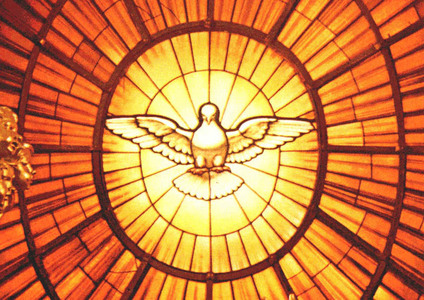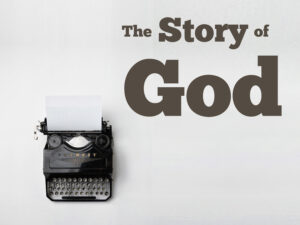The New Testament shows us the Holy Spirit of God creating a brand new community of people – all people, all languages, all nations – brought to perfect unity under the lordship of the risen Jesus. On the Day of Pentecost, those filled with the Holy Spirit quote from the prophet Joel to explain what’s happening: “I will pour out my Spirit on all people and everyone who calls on the name of the Lord will be saved.”
“Repent and be baptized, every one of you, in the name of Jesus Christ for the forgiveness of your sins. And you will receive the gift of the Holy Spirit. The promise is for you and your children and for all who are far off – for all whom the Lord our God will call.” ~Acts 2:38-39
The Holy Spirit breaks down barriers between people, he destroys the walls between all people, and brings us together in Christ. In Ephesians 2, it’s mainly about the hard feelings and the differences that keep Jews and Gentiles separate and divided. But those hard feelings and differences have all been demolished by God in Christ.
“In Christ Jesus, you who once were far away have been brought near through the blood of Christ. He himself is our peace… [He] has destroyed the barrier, the dividing wall of hostility… His purpose was to create peace… to reconcile all of us to God through the cross, by which he put to death their hostility. He came and preached peace to you who were far away and peace to those who were near. For through him we all have access to the Father by one Spirit.” ~Ephesians 2:13-18
The Berlin Wall was erected by the Soviets to separate East and West Berlin. In Bethlehem, there’s a 27-foot high wall that divides the Palestinians from the Israelis. There’s a wall on the Texas border intended to keep Mexicans and Central Americans out of the United States. We know all about walls. Not all of them are physical. There are social walls and racial walls. There are gender barriers and economic barriers. We’re divided by politics and language, we’re segregated by ethnicity and education. But the blood of Jesus brings all of us together and the Spirit of God holds us together so that our unity in all the diversity becomes an undeniable proclamation of the power of the Prince of Peace.
“You are all children of God through faith in Christ Jesus, for all of you who were baptized into Christ have clothed yourselves with Christ. There is neither Jew nor Greek, slave nor free, male nor female, for you are all one in Christ Jesus. If you belong to Christ, then you are Abraham’s seed, and heirs according to the promise.” ~Galatians 3:26-28
We have to practice this tearing down of walls, we must be dedicated to demolishing the things that separate us. We must do the very, very hard work of reconciliation because it’s such a vital component of the Church’s proclamation. 2 Corinthians 5 says God has given us the ministry of reconciliation. Peter slipped up one time in Antioch, remember? He was under some social pressures there and he stopped eating with the Gentile Christians. He wouldn’t associate with Gentiles in public. And Paul called him on it. He told him he wasn’t acting “in line with the truth of the Gospel.” He wasn’t living the Story.
If the biggest and most imposing barriers in history have all been eliminated by Jesus – national / ethnic, social / class, gender – then what other barriers can be justified? If all the walls have been abolished at the cross, who are we to erect new ones? Or to maintain the ones others have erected? If all people are created in the image of God, if God’s purpose is reconciliation and unity, if we are to love even our enemies, if Jesus took all the world’s hostility into himself to destroy it, on what grounds can we justify any walls at all?
Peace,
Allan




Recent Comments